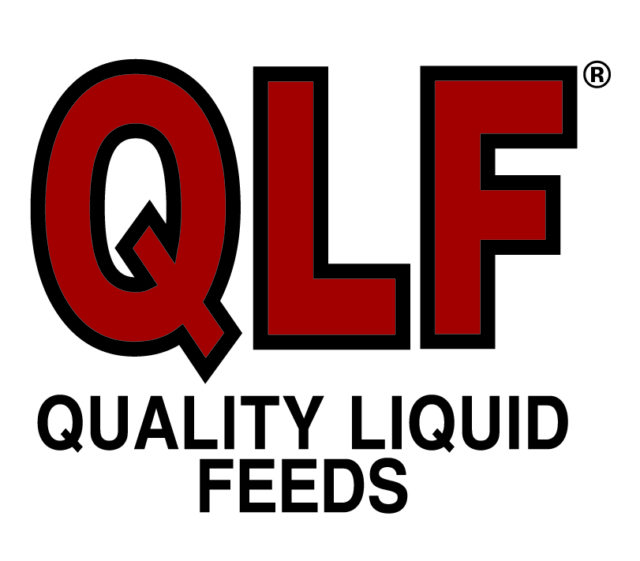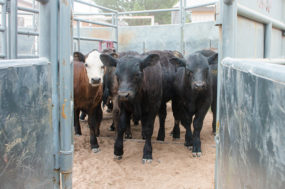The regional winners will compete for the national award, which will be presented during NCBA’s Summer Business Meeting in Reno, Nevada, July 25-28, 2022.
“Cattlemen and women across the country preserve natural resources while producing a safe and high-quality beef product,” said NCBA President Jerry Bohn. “Each of these farms and ranches exemplifies the commitment of all producers to protect the resources in their care and improve their operations for future generations.”
Regional ESAP winners come from every corner of the country and undertake stewardship efforts unique to their environment, landscape and resources. 2021 regional winners include:
Region I: EZ Acres LLC, Homer, New York
Brothers Mike and Pete McMahon manage more than 2,500 acres of the sixth-generation family-owned dairy cattle farm and beef operation. The McMahons are dedicated to protecting the three watersheds their farm impacts by monitoring soil and water samples, stabilizing streambanks by planting willow shrubs and effectively managing manure. EZ Acres also carries the conservation message to the public through farm tours and meetings with civic groups, schools, universities and churches.
Region II: Vaughn Farms, Forsyth, Georgia
James Vaughn, his wife, children and sister manage nearly 5,600 acres that are devoted to producing forage crops, providing pastureland for their cattle, and managing timberland for pulp, lumber and energy production. The family-owned farm is committed to protecting the watershed by controlling cattle access to flowing streams, distributing grazing pressure with rotational grazing systems, maintaining hayfields and pastures with proper fertilization and weed control practices, and managing timberland using best management practices. These environmental stewardship practices have made significant improvements to protected stream banks, which are now fully vegetated, and established clean areas for watering cattle, and the full coverage of year-round grasses protect the soil from erosion and the streams from sedimentation. The Vaughns also host a variety of groups to further educate the public about the benefits of agriculture and to explain their sustainable production and environmental practices.
Region III: Robbins Land & Cattle, Scranton, Iowa
Justin and Lacie Robbins manage their Iowa row crop and cattle operation based on the responsible use of natural resources. The Robbins utilize cover crops to suppress weed pressure, reduce input costs and retain essential nutrients. From rotational grazing to cover crop seeding, the family’s efforts to improve water quality and soil health go hand in hand with their purebred Angus operation. The couple found a value-added opportunity in offering naturally raised homegrown beef through an online store. The farm-to-table segment of their business also allowed the family to engage with consumers across the country and share information about the importance of agriculture.
Region IV: Dry Creek Ranch, San Angelo, Texas
After a 26-year career in the U.S. Army Veterinary Corps, Carl and his wife, Pat, returned to the family ranch to establish a registered Hereford cattle herd and continue conservation practices and improvements. The family’s motto of “pursuit of excellence” drives every decision, and the Schlinkes have put sustainability at the forefront of their ranch priorities. To protect creek banks from severe erosion and to help reduce watershed contamination, they built more than 6 miles of fencing to establish a riparian area and keep livestock from grazing the area. The Schlinkes also worked with local conservationists to control the water-absorbing mesquite and cedar trees on the property and establish a strong forage program through seeding and aeration.
Region V: Joe C. King & Sons Ranch, Winnett, Montana
The King family operates with the belief that their area of Montana is best left as native range where cattle, wildlife and the landscape can live in harmony with each other and act as a mutually beneficial system. For the last 50 years, continuously improving grazing management has been a fundamental key in the ranch’s sustainability efforts. Under the ranch’s rest-rotation grazing system, vegetation and soils are allowed to recover, providing habitat for wildlife and improved plant and soil health, providing forage for emergency use during years of drought and offering opportunities to implement long-term rangeland improvement practices during rest periods.
Region VI: JY Ferry & Son Inc., Corinne, Utah
Sustainability has long been an objective for JY Ferry & Son, with a 100-year history of conservation focusing on agricultural practices that conserve water, energy and other natural resources. The Ferry family recognizes that sustainability goes hand in hand with the economic viability of the business. Creation of strategic partnerships with local conservation groups, government entities and regulators help provide stability to the business. A primary goal of the operation is to increase economic sustainability by improving water efficiencies for the farm through laser leveling, piping of ditches and utilization of soil health principles, including cover crops and reduced tillage.
Region VII: Blair Brothers Angus Ranch, Vale, South Dakota
Blair Brothers Angus Ranch is a family-owned operation focused on embracing conservation practices that enhance soil, water, livestock and wildlife. The Blairs’ commitment to conservation has allowed them to implement progressive change. Through strategic planning, the ranch has succeeded on many levels, including investing in rotational grazing infrastructure of fencing and water pipelines; operating a short-duration rotational grazing plan addressing forage, livestock and wildlife needs; investing in preconditioning protocols and utilizing low-stress cattle handling methods; pursuing the use of vegetative treatment areas for nutrient management in their feedlot system; and treating all leased pastures as if they were their own, while educating landowners on how to utilize conservation methods to better manage their grass, land and water. ![]()
—From a National Cattlemen’s Beef Association news release






